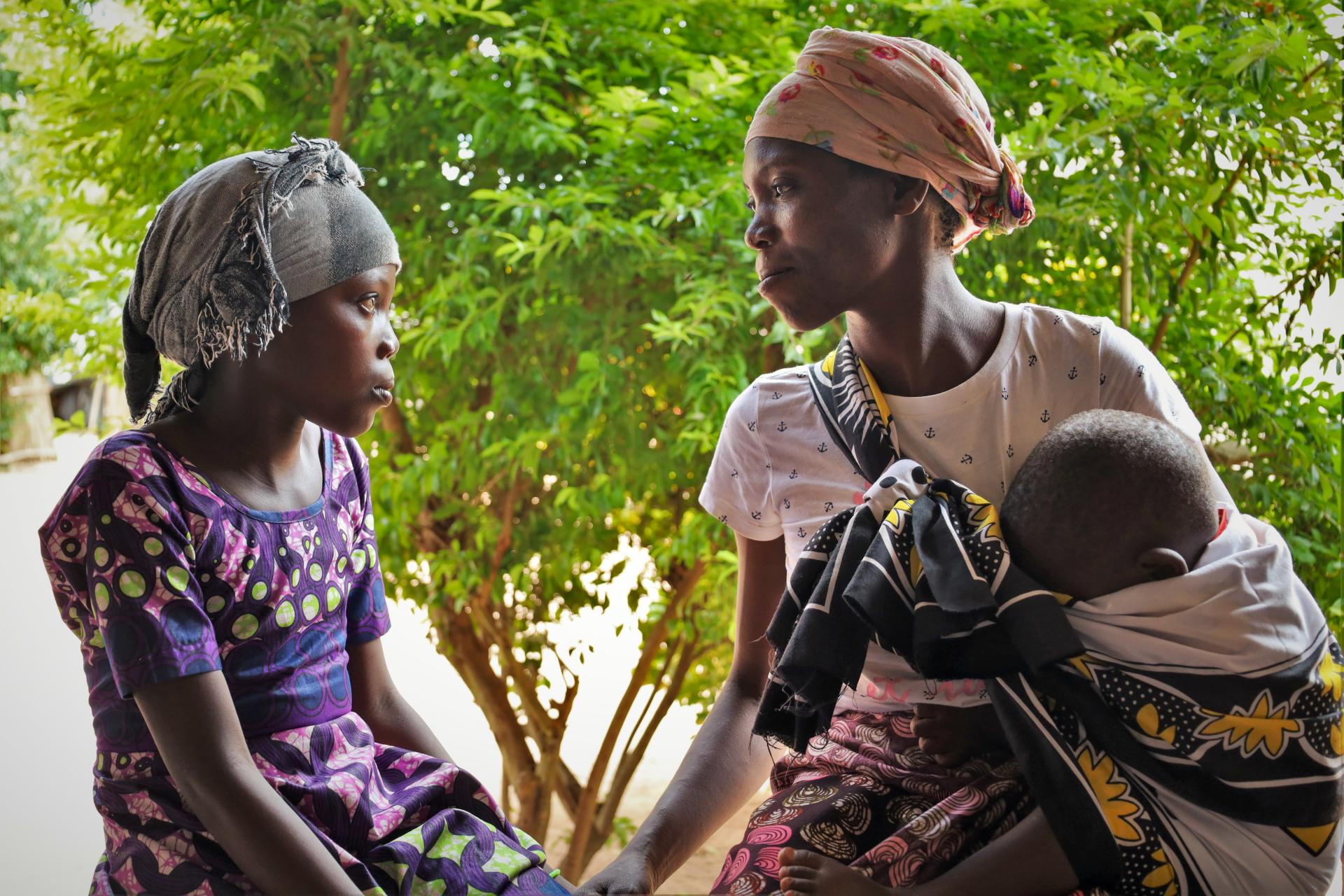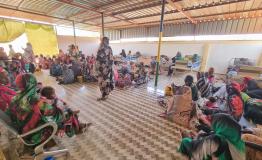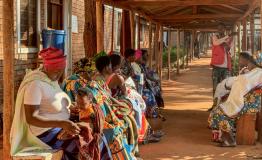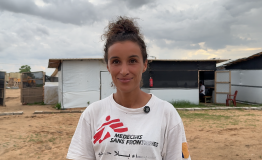Pemba, Mozambique: Six years after the start of the violent conflict in the North of Mozambique, people in Cabo Delgado still live in fear. In 2024 alone, over 80,000 people had to flee following attacks by armed groups
“Displaced people often have been highly traumatised by the violence” says Esperança Chinhanja, MSF’s psychologist in Macomia, one of the most affected districts of Cabo Delgado, “Some people experience anxiety, panic attacks, insomnia, isolation and have recurrent thoughts. Some share they lost the meaning of life and mention suicidal thoughts.”
Since 2017, families have been displaced multiple times. Most have experienced or witnessed extreme violence including killings, sexual violence, kidnappings, extortion, and villages being burnt. Many had or saw their relatives and neighbours being assassinated, decapitated, or killed by gunfire. Some have lost their entire family.
The violence isn’t abating, and people have to flee repeatedly. As of January 2024, some 76,000 people were living in Macomia who had been displaced over the past years. In February, some 3,600 people were newly displaced following multiple attacks in the district. Their stories are harrowing. Joaquim*, 42 years old, has been displaced since 2022, and is now responsible for registering new people arriving at a camp for displaced families in Macomia. He records the names of all newcomers and carries their stories, experiences, needs, and frustrations.
At night I can’t sleep between being hungry and haunted by the memories of the attacks.Amade*, a 60-year-old farmer, who fled from Pangane in February
Amade*, a 60-year-old farmer, was forced to flee his village in Pangane in February. He is currently staying in a camp in Macomia village, some 45 kms away from his hometown. While visiting an MSF clinic he shared “When we heard shots being fired, we started running. This was the fourth time fleeing attacks in my village since 2020. We don’t have any food and we are relying on the generosity of others to eat. I have lost so much weight that I do not even recognise my body – my pants are falling off as they don’t fit any longer. At night I can’t sleep between being hungry and haunted by the memories of the attacks.”
Like Amade, Ernestina Jeremias, a 32-year-old midwife, was also displaced in February from Chai and is currently in Macomia village, some 40 km away from her area of origin. “The attacks destroyed everything we had, including our lives. This is the third time I have fled from Chai. The last attacks were the most brutal as they happened repeatedly for two weeks. I have been in a displacement centre since I arrived in Macomia. Here, I am providing support to pregnant women from my community who also fled the attacks, and I refer the most serious cases to MSF clinics. This is what keeps me going.” says Ernestina.
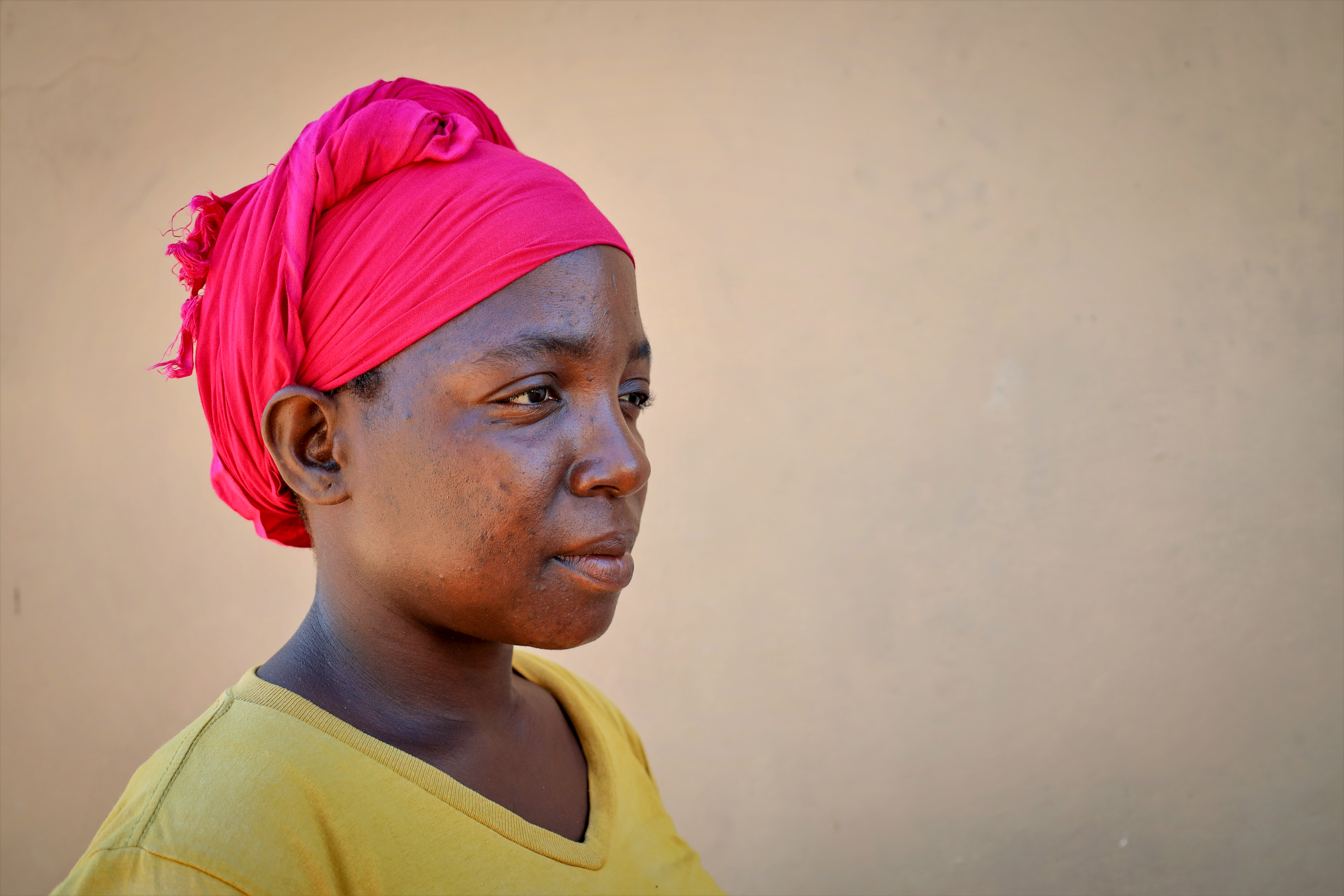
Atija, a 28-year-old mother, shared the following while accompanying her two children to the MSF clinic in Nanga: “I was pregnant when our village was attacked in Meluco district in 2022. I saw my house being burnt down, we lost everything we had on that day. My family and I fled to the bush and walked for two days. Since then, I have never been the same and I am still struggling with panic attacks, insomnia, and I want to be alone most of the time. I find my strength to continue living from my children and trying to find food for us. I am working in other people’s fields, and they give me dried cassava in exchange.”
The conflict continues to have a significant impact on public services, particularly with the destruction of health facilities, posing serious constraints in accessing basic healthcare. In Macomia, out of seven existing health centres managed by the Ministry of health before the conflict, only one is working. MSF is supporting three clinics in the village of Macomia and providing lifesaving assistance and medical care to those who were previously and recently displaced.
The security situation remains volatile in Cabo Delgado and it is premature to talk about stabilisation and life returning to normal. As of December 2023, over 540,000 people remained displaced while 600,000 returned to their villages
MSF has been working in Cabo Delgado since 2019. We currently work in the districts of Macomia, Mocimboa da Praia, Mueda, Muidumbe, Nangade, and Palma providing independent, impartial, and neutral humanitarian and medical assistance to displaced communities and those returning to areas of origin. In 2023, MSF reached over 85,000 people in mental health group activities and provided 5,000 individual mental health sessions in Cabo Delgado.
*Names have been changed to protect the identity of interviewees.
